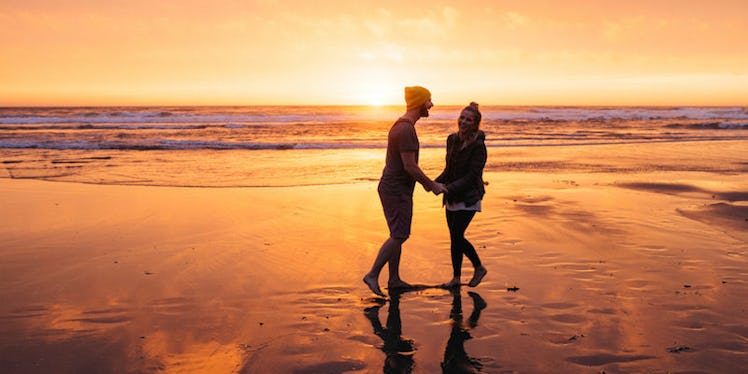
The Millennial Mind: Why Experiences Are More Rewarding Than Possessions
Earlier this year, what started out as a carefully-crafted vacation for my cousin’s wedding in New Jersey took on a life of its own. It morphed into a month-long, extended travel experiment in New York.
Even though my younger self would have found the lifestyle of crashing on friends’ couches decidedly unglamorous, my first experience working remotely, while living out of a backpack, was liberating. It planted the seeds of a lot of thoughts and questions about the materialistic lifestyle our culture promotes.
Since then, I’ve become as comfortable living out of a suitcase as I was in my home, accumulating countless possessions.
This lifestyle of travel has been enabled by the extended social networks, and a certain fearless optimism, which exemplifies the Millennial generation. Thanks to the Internet and social media, we now have huge networks that span the entire world.
We feel comfortable leaning on our loose social connections, including friends of friends. Stanford sociologist, Mark Granovetter, has coined the term “the strength of weak ties,” describing the loose social connections that embed us within larger communities.
These weak ties, along with our sense of trust and faith in humanity, allow Millennials to travel and rely on the goodness of others to help them make it work.
When I travel, friends give me recommendations on what to do and see. They offer their couches or spare bedrooms for me to stay in, and they even connect me with people they know in other cities.
Us Millennials strive to create careers we're passionate about and work jobs we actually enjoy. There’s no need for us to take vacations from our jobs. Now, we leverage a mobile lifestyle in order to find meaning and challenge through travel.
Technology allows increasingly more people to work remotely, which is what enabled me to venture out without worrying about leaving my source of income.
The New York experiment was a success.
My experience showed me, first-hand, how today’s world revolves around the strength of weak ties. I have decided to leave behind the suburban lifestyle I previously had in Phoenix, move to Los Angeles and stay at a friend’s apartment while he travels in Europe for the next month.
While I’ll admit it’s a little scary not knowing where I’ll be living next, that freedom is part of the appeal that made me leave behind the carefully constructed life I had in Phoenix. I got tired of feeling like I wasn’t being challenged in my everyday life, and extended travel was a natural antidote to that feeling.
The research from psychology and behavioral economics is clear: We’re happier when we spend money on experiences, like traveling and other people, than when we spend it on material goods and ourselves.
In "Happy Money: The Science of Smarter Spending," Michael Norton and Elizabeth Dunn write about how the majority of Americans experience more happiness when they spend their money on experiential purchases (like an awesome meal or a concert), rather than material purchases (like furniture or a new car).
Ryan Howell, a researcher at San Francisco State University, has explained this occurs because the emotional high that comes with buying material goods tends to fade, while the positive memories we get from experiences last forever.
Extended travel is an easy way to incorporate this idea into your life, because it forces you to be minimalistic in your material purchases. At the same time, it influences you to spend money on experiences that create a sense of vitality.
Living out of a suitcase has made me realize how little I truly need my possessions. The stories I forged while running around New York with friends, finding late night, hole-in-the-wall karaoke bars and stumbling to food carts afterwards, all while singing Fetty Wap’s "Trap Queen," will last a lifetime.
This is enough to make buying the latest iPhone or TV seem pointless.
As described in a Wall Street Journal piece by Sumathi Reddy, our health and well-being can improve in as little as two days of traveling.
By integrating this kind of experience into our regular routine, we can recharge our batteries and experience the benefits of an extended vacation without it disrupting our lives.
I credit traveling with keeping me out of mental ruts, expanding my perspective on the world and improving my ability to thrive in stressful situations. For me, two days has consistently been enough time to gain a glimpse into this type of growth.
A vacation is a break from regular life, and traveling is the foundation of the ideal, regular lifestyle we crave. What separates us from previous generations is, when we’re looking at the paycheck we get, we view it in the ways it can provide us purpose, meaning and fulfillment.
We’re not trying to run from commitments and be George Clooney’s character from "Up In The Air." Instead, we’re seeking the freedom to experience new things and meet new people.
For those who are passionate about their daily work and modern lifestyle, the idea of taking a vacation to escape from it just doesn’t apply anymore.
It feels as outdated as the perfect home with a white picket fence, which is just another American aspiration Millennials are questioning.